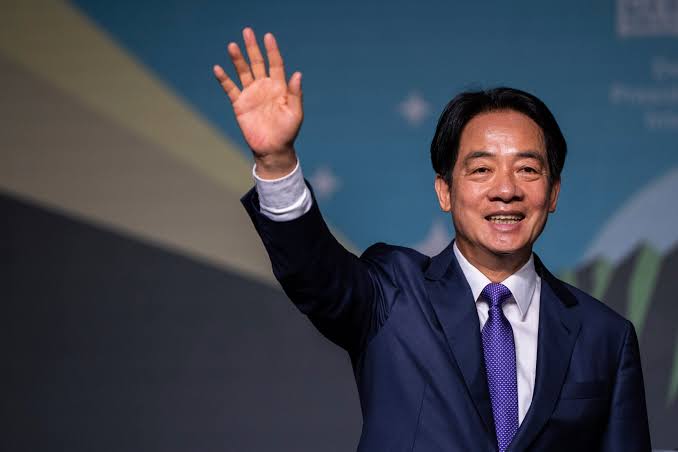On Sunday, Taiwan’s President Lai Ching-te proposed initiating discussions with the U.S. based on a framework of zero tariffs. He committed to dismantling trade barriers instead of implementing reciprocal tariffs, emphasizing that Taiwanese firms would increase their investments in the United States.
This announcement follows President Donald Trump’s declaration of broad import tariffs on Wednesday, which includes significantly elevated duties for numerous trading partners, Taiwan among them. Taiwan currently enjoys a substantial trade surplus with the U.S. but faces a 32% tariff on its exports.
Notably, these U.S. tariffs do not extend to semiconductors, a key export for Taiwan.
In a video message shared by his office after a meeting with executives from small and medium-sized enterprises at his residence, Lai acknowledged that Taiwan’s heavy reliance on trade would make it challenging for the economy to cope with the tariffs, though he believed the adverse effects could be mitigated.
“Discussions on tariffs could commence with a ‘zero tariffs’ approach between Taiwan and the United States, similar to the U.S.-Canada-Mexico free trade agreement,” Lai stated.
He further clarified that Taiwan does not intend to retaliate with tariffs and that Taiwanese companies will maintain their investment commitments to the U.S. as long as it aligns with Taiwan’s interests.
Last month, Taiwan’s TSMC, the leading global contract chip manufacturer, announced plans for an additional $100 billion investment in the U.S.
Lai noted, “In the future, alongside TSMC’s increased investment, other sectors such as electronics, information and communications, petrochemicals, and natural gas are expected to enhance their investments in the U.S., thereby strengthening Taiwan-U.S. industrial collaboration.”
Additionally, Taiwan’s cabinet is evaluating potential large-scale purchases in agriculture, industry, and energy from the United States, while the defense ministry has already proposed its plans for weapon acquisitions.
Read more: Cambodia Strengthens its Fight Against Human Trafficking.
Lai stated, “We will actively pursue all purchases.”He noted that non-tariff trade barriers serve as a measure for the U.S. to evaluate trade fairness. Taiwan is committed to addressing these long-standing barriers to facilitate smoother trade negotiations with the U.S.Despite the absence of formal diplomatic relations, the U.S. remains Taiwan’s most significant international ally and primary arms supplier.Taiwan has been subjected to increased military and political pressure from China, which claims the democratically governed island as part of its territory, a stance that the Taipei government strongly opposes.Just prior to Trump’s tariff announcement, China concluded its latest series of military exercises near Taiwan.Lai remarked that Taiwan has successfully navigated major global crises in the past.”We have not only managed to overcome these challenges but have also transformed crises into opportunities, leading to a more robust and resilient Taiwanese economy,” he added.




